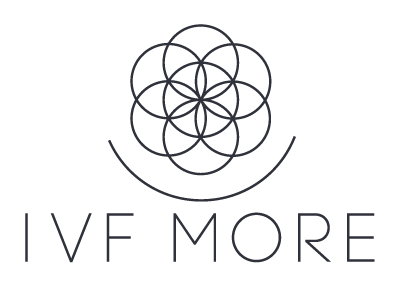Top 5 Myths About Egg Quality and Age, Debunked by Science
September 2025

For many individuals and couples trying to have a baby, egg quality and age become a central focus in their fertility journey. Unfortunately, there’s a lot of misinformation that creates fear and confusion. Let’s set the record straight. In this article, we’ll explore the top five myths about egg quality and age, and explain what science, including advanced reproductive technologies like IVF MORE®, tells us.
Myth 1: “If You’re Over 35, It’s Impossible to Have a Baby with Your Own Eggs”
Truth: While fertility naturally declines with age, especially after 35, it does not mean pregnancy with your own eggs is impossible. Many women over 35 (and even 40) can still conceive with their own eggs, especially with the right medical support.
What Science Says:
- Egg quantity declines with age, but egg quality can sometimes be improved.
- Assisted reproductive technologies (ART) now allow us to analyze and restore eggs rather than immediately resorting to donation.
- Techniques like cytoplasmic enrichment and magnetic field incubation, as offered by IVF MORE®, help improve the viability of aging eggs.
IVF MORE® Advantage: With metabolic diagnosis and egg restoration techniques, IVF MORE® offers renewed possibilities for women in their late 30s and 40s.
Myth 2: “Egg Freezing Guarantees Future Pregnancy”
Truth: Egg freezing is a valuable tool for fertility preservation, but it does not guarantee a future pregnancy.
What Science Says:
- The success rate of frozen eggs depends heavily on egg quality at the time of freezing.
- If eggs are frozen at an older age (after 38), they may already carry chromosomal abnormalities.
- Frozen eggs still need to go through fertilization, embryo development, and implantation—all of which can be affected by age and health.
IVF MORE® Insight: Egg quality assessments and restoration protocols can improve the chances of success even with previously frozen eggs.
Myth 3: “You Can Improve Egg Quantity with Supplements”
Truth: No supplement can increase the number of eggs a woman has. Egg quantity is determined at birth and declines over time.
What Science Says:
- Women are born with a finite number of eggs.
- Supplements like CoQ10, DHEA, and myo-inositol may help enhance egg quality but not quantity.
- Hormonal stimulation during IVF helps recruit more eggs in a single cycle but doesn’t increase the total reserve.
IVF MORE® Perspective: By analyzing eggs at a metabolic level, IVF MORE® selects and restores those with the best potential—a far more precise approach than relying on generalized supplementation.
Myth 4: “All Women Age the Same Reproductively”
Truth: Age is an important factor, but it’s not the only factor. Reproductive aging varies significantly between individuals.
What Science Says:
- Genetics, lifestyle, and medical history influence egg quality and reserve.
- Two women of the same age may have completely different ovarian reserves.
- Conditions like endometriosis, PCOS, or autoimmune disorders can accelerate reproductive aging.
IVF MORE® Solution: Every case at IVF MORE® starts with a personalized diagnostic, ensuring treatments are tailored to your specific biological needs.
Myth 5: “If IVF Fails Once, It Will Never Work”
Truth: A single failed IVF attempt does not predict the outcome of future cycles.
What Science Says:
- Success often depends on multiple variables: egg quality, sperm quality, uterine health, lab conditions, etc.
- Some patients achieve success in later cycles, especially with new techniques.
- Up to 96% success in multi-cycle solutions has been reported in clinics using advanced fertility techniques like IVF MORE®.
IVF MORE® Advantage: Our multi-cycle programs and egg restoration technology offer higher chances over time, especially for those with previous failures.
Why Egg Quality Matters More Than Quantity
Even though the number of eggs decreases with age, the viability of the remaining eggs is what really matters. An older woman with a few high-quality eggs may have better chances than a younger woman with poor-quality ones.
Factors That Affect Egg Quality:
- Mitochondrial health
- Chromosomal integrity
- Hormonal balance
- Exposure to environmental toxins
- Inflammation or chronic medical conditions
IVF MORE® addresses these factors directly through:
- Metabolic Diagnosis
- Cytoplasmic Enrichment
- Magnetic Incubation
- Personalized hormone protocols
Final Thoughts: Trust Science, Not Myths
Fertility myths can be disheartening, especially when they suggest there’s only one path or timeline for becoming a parent. The truth is, science continues to evolve, and with it, your possibilities grow.
IVF MORE® combines regenerative medicine and assisted reproduction to challenge what’s long been believed about egg quality and age. If you’ve been told your age or egg quality limits your chances, it may be time to look into egg restoration with IVF MORE®.
Book a consultation today and discover what’s truly possible.
